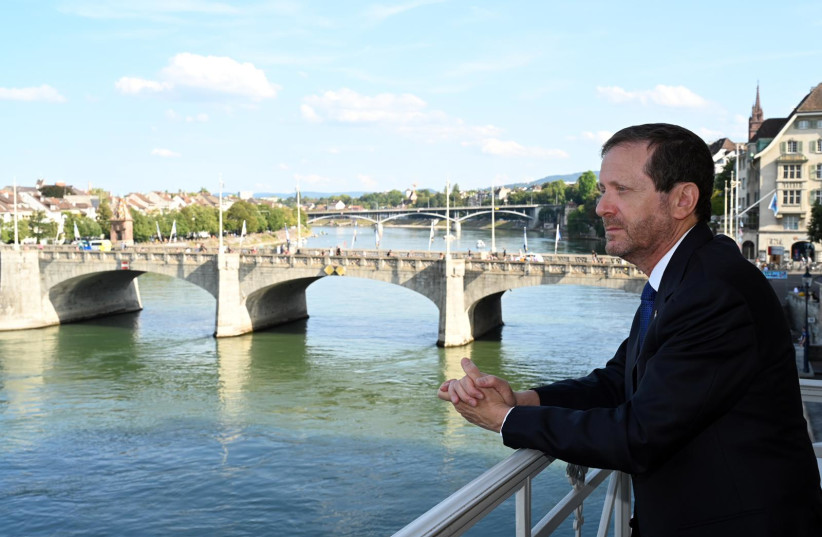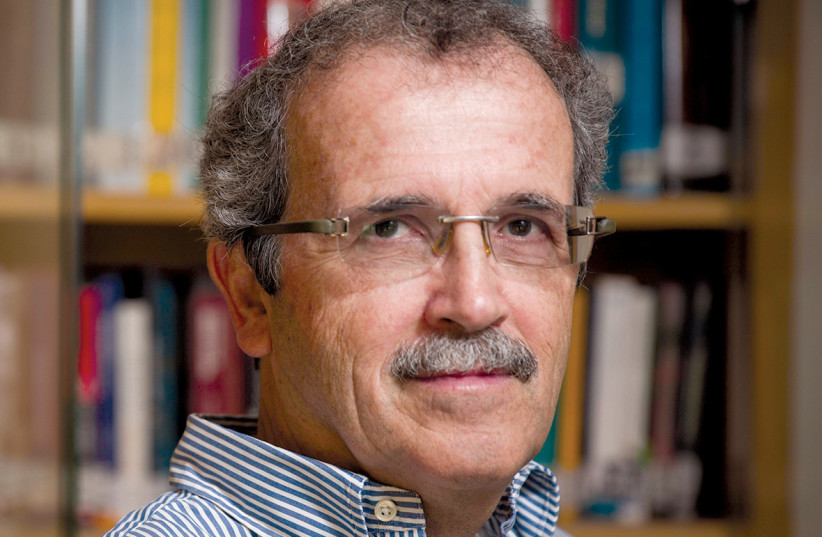“Were I to sum up the Basel Congress in a word it would be this: At Basel I founded the Jewish state. If I said this out loud today l would be greeted by universal laughter. In five years perhaps, and certainly in fifty years, everyone will perceive it.” – Theodor Herzl, 1897
“Were I to sum up the Basel Congress in a word it would be this: At Basel I founded the Jewish state. If I said this out loud today l would be greeted by universal laughter. In five years perhaps, and certainly in fifty years, everyone will perceive it.”
Theodor Herzl, 1897
Theodor Herzl’s diary entry came just after the conclusion of the First Zionist Congress in Basel. His 50-year prediction for Jewish statehood was only a year off, as Israel was established 51 years later, but came too late to provide a safe haven for the six million who were killed in the Holocaust.
The World Zionist Organization marked the 125th anniversary of the Basel Congress in late August with a series of events in Switzerland, Israel and around the world.
Although the Basel Congress will be remembered as the pivotal event marking the launch of Zionism as a political movement, the Swiss venue was actually Plan B, forced on Herzl as a result of the vocal opposition to holding the gathering in Munich by both the Orthodox and Reform community leadership.
Zionism at the time was a minority movement within the European Jewish communities, lacking both the endorsement of the establishment and popular support from the masses.

But Herzl, who died in 1904 at 44, was determined to overcome the hostility and indifference as he rose to the challenge. He chaired the Basel Congress attended by 208 participants from 17 countries. Sixty-nine were delegates from various Zionist societies, with the remainder arriving as individual invitees.
Over half the delegates were from Eastern Europe, with nearly a quarter coming from Russia.
The program that was adopted, which came to be known as the Basel Program, set out the goals of the Zionist movement to establish a national home for the Jewish people in the land of Israel.
The main event to mark the 125th anniversary this year took place in the city itself, in the very same Stadtcasino Hall where the original delegates had gathered to launch the Zionist movement.
“The 125th anniversary of the First Zionist Congress in Basel is a historical landmark, which was a defining event for the Jewish people and humanity as a whole.”
Israeli President Isaac Herzog
“The 125th anniversary of the First Zionist Congress in Basel is a historical landmark, which was a defining event for the Jewish people and humanity as a whole,” declared President Isaac Herzog, who previously served as head of the Jewish Agency, the body that fosters Jewish immigration to Israel. “Zionism is the ideal combination of deep Jewish values and innovation and a groundbreaking entrepreneurial spirit. As the president of the nation-state of the Jewish people, I am thrilled and proud to see every day how Herzl’s vision comes to life before our eyes, and feeling a heavy commitment and responsibility for the future of the State of Israel and the Jewish people.”
Anti-Israel demonstrators held a protest near the gathering, marching behind a banner that read, “Free Palestine. No Zionist Congress.”
Herzog alluded to the word “Zionism” often having a negative connotation, particularly on social media, and is even used as a term of abuse. He urged the delegates to reclaim “positive Zionism.”
“We must fight this antisemitic and anti-Zionist approach,” he said. “History has already shown what dark depths it can reach. We must reclaim the term ‘Zionism’ for ourselves, with our heads held high and our backs straight, as an expression of our own national identity, traditions, hopes, pride, enlightened values, justice, and commitment to tikkun olam (repairing the world). I appeal to you all, dear brothers and sisters, with this clear and lofty call: we must reclaim Zionism! This is the mission of our generation.”
Best-selling Israeli writer and philosopher Dr. Micah Goodman also had a message for the Basel gathering.
“We have reached a new stage in the responsibility of the Jewish people,” Goodman said. If Herzl found a universal solution to the Jewish problem, we are now in an era where universal problems are being solved by Jewish solutions.”
Yaakov Hagoel, World Zionist Organization chairman who initiated the Basel event, highlighted the historic achievement of the Zionist movement.
“Many of us were born into the reality of the State of Israel existing as a sovereign, powerful, Jewish and value-based entity,” he said. “But just five generations before, it was a distant dream.”
Another key speaker was Ahmed Obaid AlMansoori, a former member of the UAE Federal National Council. He is founder of the Crossroads of Civilization Museum in Dubai, which exhibited the first Holocaust memorial gallery in the Arab and Islamic world. As part of a collection of historical Jewish documents and items to display in the museum, he acquired a rare letter written and signed by the Herzl in 1987.
“It is of utmost importance that the young generations of the Middle East learn about Judaism, Zionism and Israel,” AlMansoori said. “This will strengthen peace not only between Israel and the United Arab Emirates but among the entire region. It is important that we live side by side with mutual respect for one another, understanding the history and values of each nation and its people.”
Although the Basel gathering attracted hundreds of participants, including philanthropists and Israeli hi-tech entrepreneurs, it was criticized by some as being overtly lavish and closed to the public.
One wonders what Herzl would have thought of it all. ■

‘The miracle started in Basel’
“What happened in Basel is a miracle,” says Yedidia Stern, president of the Jerusalem-based Jewish People Policy Institute and one of the main speakers at the Basel anniversary gathering. “You can’t think of another national liberation movement or power that created a nation-state in the 18th, 19th or 20th century that did it without any serious bloodshed between different factions. Here, Herzl was able to convene almost everybody, and this was the beginning of a democratic process that enabled Ben-Gurion in 1948 to establish Israel as a democracy without any question. The delegates at Basel came from many different countries, most of which were not democracies, but nevertheless, it was clear this was going to be democratic. And it started in Basel.”
<br>Would a Jewish state have been established without the Basel Congress?
How can anyone say? You never know what the driving force of history is and the role played by individuals such as Herzl and Ben-Gurion. Another question is, would there have been a state of Israel without the Holocaust. Historians are divided on this question.
<br>If Herzl could see Israel today, what would he think?
First of all, he would be amazed and proud that Israel is a leader in the hi-tech world. Interestingly enough, Herzl was basing the Jewish state on technology. He was saying we will be the source for a new era in humanity using technology and in a way, this is what is happening.
But he would be very disappointed that religion is still such a strong force in Israeli society. For him and for Ben-Gurion, nationalism was supposed to replace religion.
He would be amazed that Israel is such an important force in world diplomacy. I think we owe a lot to Theodor Herzl, and I think he would look at Israel as a real success in terms of Jewish history.
<br>Would he not also be disappointed that whereas he envisioned Jews and Arabs living together in harmony, the conflict is still with us after so many years?
A hundred percent. I think Herzl, being a European from Vienna, didn’t understand the phenomenon of identity as we understand it today – the importance of Arab identity, Palestinian identity and Jewish identity, and the collision between them. He thought that living together in harmony is the obvious solution. Well, he was blind on this subject.
